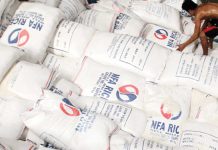
THE Philippines eyes to join the critical minerals agreement between the United States and Japan, therefore forming a trilateral partnership.
In a recent interview, Department of Trade and Industry (DTI) secretary Alfredo Pascual said this was proposed during the meeting of top trade officials of the Philippines, the US, and Japan during the historic trilateral meeting of these countries in Washington D.C. early this month.
Pascual said he told his American and Japanese counterparts that the Philippines, having a rich mineral resources and a major player in the production of critical mineral, has a crucial role in the global market.
He said the Philippines could offer the US and Japan with supply of critical minerals amid the tighter global supply.
“Now that Indonesia has banned export of nickel ores, we are effectively the only major producer now of mineral ores that are still selling to the global market, particularly China,” the trade chief said last Friday.
He added 90 percent of Philippine nickel ore exports go to China for the latter’s battery manufacturing.
“(F)rom a strategic standpoint, it would affect the supply needed by countries like Japan, and eventually US,” Pascual said.
Pascual said that although Japan has critical minerals deal with the US, the former does not produce nickel ores and is reliant on the nickel ore produced in the Philippines through Sumitomo, which has two HPAL processing plants in the country.
“To tie things more tightly among the three countries that are working together to ensure resiliency of supply, we need to be part of that agreement. And I told our meeting that if it’s difficult to have one-on-one or bilateral critical minerals agreement between the Philippines and the US, what we can do is just accede to what is existing now which is the Japanese and American critical minerals agreement,” the DTI chief said.
More than increasing exports to the US, Pascual said this plan of acceding to the US-Japan critical minerals deal aims to attract more US companies to invest in mineral processing in the Philippines.
“We just proposed the idea then they have to mull it over,” he said.
“The Japanese are open to it. Well, at least the Secretary of Commerce, of course, she doesn’t have full say on this, they’ll take it up within the US government,” he added. (Philippine News Agency)







